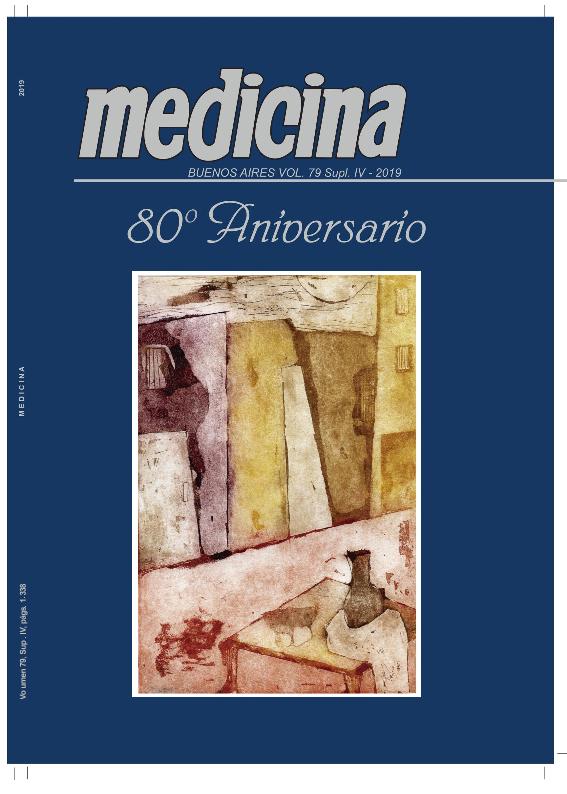Evento
Novel FMO3 mutations involved in trimethylaminuria disorder
Stupniki, Sofia ; Dionisio, Leonardo Raul
; Dionisio, Leonardo Raul ; Aztiria, Eugenio Manuel
; Aztiria, Eugenio Manuel ; Alda, Maximiliano; Shimizu, Makiko; Yamazaki, Hiroshi; Spitzmaul, Guillermo Federico
; Alda, Maximiliano; Shimizu, Makiko; Yamazaki, Hiroshi; Spitzmaul, Guillermo Federico
 ; Dionisio, Leonardo Raul
; Dionisio, Leonardo Raul ; Aztiria, Eugenio Manuel
; Aztiria, Eugenio Manuel ; Alda, Maximiliano; Shimizu, Makiko; Yamazaki, Hiroshi; Spitzmaul, Guillermo Federico
; Alda, Maximiliano; Shimizu, Makiko; Yamazaki, Hiroshi; Spitzmaul, Guillermo Federico
Colaboradores:
Kotsias, Basilio Aristides ; de Vito, Eduardo
; de Vito, Eduardo ; Narvaiz Kantor, , Isabel; Semeniuk, Guillermo Basilio
; Narvaiz Kantor, , Isabel; Semeniuk, Guillermo Basilio
 ; de Vito, Eduardo
; de Vito, Eduardo ; Narvaiz Kantor, , Isabel; Semeniuk, Guillermo Basilio
; Narvaiz Kantor, , Isabel; Semeniuk, Guillermo Basilio
Tipo del evento:
Congreso
Nombre del evento:
LXIV Reunión Anual de la Sociedad Argentina de Investigación Clínica; LI Reunión Anual de la Asociación Argentina de Farmacología Experimenta; XXI Reunión Anual de la Sociedad Argentina de Biología; XXXI Reunión Anual de la Sociedad Argentina de Protozoología; IX Reunión Anual de la Asociación Argentina de Nanomedicinas y VI Reunión Científica Regional de la Asociación Argentina de Ciencia y Tecnología de Animales de Laboratorio
Fecha del evento:
13/11/2019
Institución Organizadora:
Sociedad Argentina de Investigación Clínica;
Asociación Argentina de Farmacología Experimental;
Sociedad Argentina de Biología;
Sociedad Argentina de Protozoología;
Asociación Argentina de Nanomedicinas;
Asociación Argentina de Ciencia y Tecnología de Animales de Laboratorio;
The Histochemical Society;
Título de la revista:
Medicina (Buenos Aires)
Editorial:
Fundación Revista Medicina
ISSN:
0025-7680
e-ISSN:
1669-9106
Idioma:
Inglés
Clasificación temática:
Resumen
Trimethylaminuria is a human autosomal recessive disorder due to mutations in the gene of the enzyme flavin-containing monooxygenase 3 (FMO3). In this condition, odorous trimethylamine (TMA) cannot be converted into its non- odorous N-oxide. Consequently, TMA accumulates and is excreted through urine and sweat being responsible of the characteristic malodor of the patients. Clinical diagnosis is based on the quantification of TMA in urine samples and is confirmed by genetic analysis which additionally contributes to risk stratification. None of them are performed in Argentina, where diagnosis is based on the body odor. The aim of this case study was to correlate the clinical diagnosis with genetic variants of FMO3. The index patient is a female (12 y.o.) with fishy malodor since she was a toddler and with an exacerbation of the condition since puberty. Symptoms are only controlled by strict diet restriction. The patient and unaffected direct relatives were analyzed to build up and evaluate the genetic pedigree. gDNA was obtained from jaw swabs. We used specific primers designed for the coding exons (2 to 9) to amplify them by PCR followed by sequencing. The mutant enzyme activity was tested using heterologous expression. The index case beard 2 SNPs of the FMO3 gene: c.472G>A (E158K) and c.923A>G (E308G). She also carried two novel mutations resulting in amino acid substitutions: P73L and F140S. All of them were in heterozygosity. The mother carried the P73L/E158K/E308G allele and the father the F140S allele. Functional analyses showed a 50 and 90 % decrease of the catalytic capacity for the mother and the father alleles, respectively (n= 3). Based on the family pedigree, we identified a compound heterozygous patient for the two novel point mutations. Functional analysis demonstrated a drastic reduction in enzyme activity for each allele, which combined with the already known changes promote the severe condition exhibited by the patient.
Palabras clave:
TMAU
,
METABOLISM
,
MUTATIONS
,
FISH-ODOR
Archivos asociados
Licencia
Identificadores
Colecciones
Eventos(INIBIBB)
Eventos de INST.DE INVEST.BIOQUIMICAS BAHIA BLANCA (I)
Eventos de INST.DE INVEST.BIOQUIMICAS BAHIA BLANCA (I)
Citación
Novel FMO3 mutations involved in trimethylaminuria disorder; LXIV Reunión Anual de la Sociedad Argentina de Investigación Clínica; LI Reunión Anual de la Asociación Argentina de Farmacología Experimenta; XXI Reunión Anual de la Sociedad Argentina de Biología; XXXI Reunión Anual de la Sociedad Argentina de Protozoología; IX Reunión Anual de la Asociación Argentina de Nanomedicinas y VI Reunión Científica Regional de la Asociación Argentina de Ciencia y Tecnología de Animales de Laboratorio; Mar del Plata; Argentina; 2019; 248-248
Compartir



